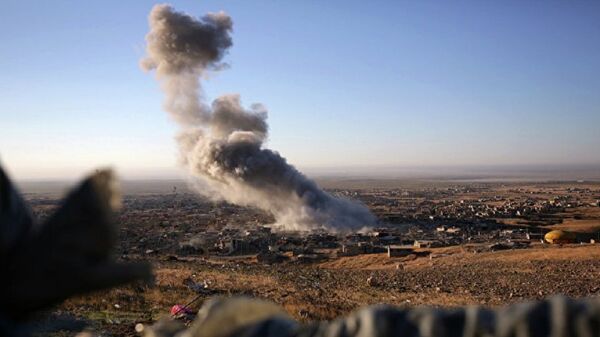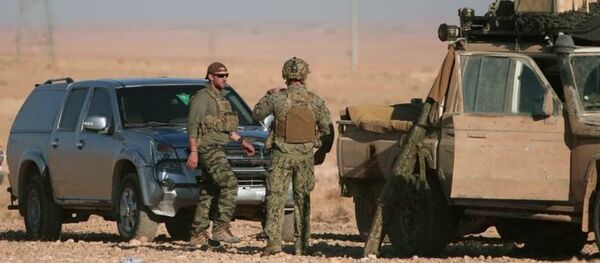Interestingly, the coalition has not gathered in full since 2014. They're getting together now in the US capital, "review[ing] the progress that has been made against the terror group and ‘accelerating' efforts to defeat and destroy the group in Iraq and Syria, including disrupting their financing and the flow of foreign fighters," according to an ABC News announcement.
"Everyone recognizes there's been significant progress in the past year, especially. We've seen gains made against [Daesh] across the board, whether it's in Syria, but certainly in Iraq, liberations of large areas that they previously held," ABC cited State Department acting spokesperson Mark Toner saying. Toner added that the summit is "a way to accelerate and focus more on how we can accelerate our efforts."
Toner acknowledges "significant progress," but refrains from pointing out who, exactly, contributed most to this progress.
According to Becker and his guest Catherine Shakdam, an independent geopolitical analyst and commentator for the Middle East, the countries that have been "instrumental" to fighting Daesh are Syria, Iran and, to some degree, Russia. ABC indeed pointed out that, "Russia is not part of the Global Coalition and will not be present at the summit." Both Syria and Iran are totally omitted.
It seems these countries have been doing well enough without the coalition. Forces loyal to Syrian President Bashar al-Assad are now located about 80 kilometers from Raqqa, the de-facto capital of Daesh and are closing in on Raqqa in a pincer movement with Kurdish forces from the north. At the same time, Iraqi forces, supported by the US and its coalition, are basically stuck in Mosul. The operation there that was supposed to end with triumph before the US presidential election in November is still underway, and has resulted in extreme civilian losses.
Trump repeatedly emphasized defeating Daesh as one of his primary goals during his presidential campaign; to achieve this, he has claimed, he is going to arrange coordination between the coalition and Russia to fight the terror group together. Leaving Russia out of the coalition summit seems, then, a missed opportunity.
Shakdam also pointed out that Wahhabism is the "state religion" of Saudi Arabia; despite the fact that Saudi Wahhabism differs from that of Daesh, the two have a common ground.
"So how it is possible today to ask Saudi Arabia to contribute to counter terrorism when we know for a fact and it has been documented that Saudi Arabia stands and sits behind the architecture of terror today?" she asked.
"Russia is the only sane power in the world (you know, with Iran), which abides to… international law and such principles as national sovereignty," Shakdam notes. "Russia does not intervene where it is not wanted and where it is not wanted or asked to. The same cannot be said for US, Britain or France."
According to Toner, US Secretary of State Rex Tillerson "will come with new ideas and new approaches and a new way of looking at how to defeat Daesh" to the upcoming summit.
One would do well to stock up on popcorn. The war isn't going anywhere, is it?




